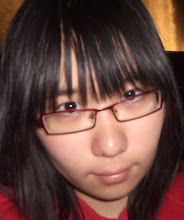십자가
윤동주
쫓아오던 햇빛인데
지금 교회당(敎會堂) 꼭대기
십자가에 걸리었습니다.
첨탑(尖塔)이 저렇게도 높은데
어떻게 올라갈 수 있을까요.
종소리도 들려 오지 않는데
휘파람이나 불며 서성거리다가
괴로웠던 사나이
행복한 예수 그리스도에게
처럼
십자가가 허락된다면
모가지를 드리우고
꽃처럼 붉은 피를
어두워 가는 하늘 밑에
조용히 흘리겠습니다.
윤동주
쫓아오던 햇빛인데
지금 교회당(敎會堂) 꼭대기
십자가에 걸리었습니다.
첨탑(尖塔)이 저렇게도 높은데
어떻게 올라갈 수 있을까요.
종소리도 들려 오지 않는데
휘파람이나 불며 서성거리다가
괴로웠던 사나이
행복한 예수 그리스도에게
처럼
십자가가 허락된다면
모가지를 드리우고
꽃처럼 붉은 피를
어두워 가는 하늘 밑에
조용히 흘리겠습니다.
The Cross
Yoon Dong-ju
Yoon Dong-ju
The sunbeams that followed me
Are now falling on the cross
At the steeple of a church.
How can one climb up there,
To the steeple so high?
Now the bell is not ringing,
I shall loiter awhile, whistling.
I shall loiter awhile, whistling.
If the cross is to be granted me,
As it was once to Christ,
One who suffered gladly,
I shall quietly endure,
Drooping my head,
While my blood oozes like flowers
Beneath the darkening sky.
Une Croix
Yun-Dong-ju
Yun-Dong-ju
Le soleil qui me suit,
Est accroche maintenant
A la croix du faite d'une eglise.
Comment peut-il monter
Sur une fleche si haute?
On n'entend meme pas les sons d'une cloche,
Mais allant et venant en sifflant,
Un homme qui etait console,
Comme Jesus heureux,
Si on lui permet la croix.
Offre sa vie,
Et fera, sans bruit, couler du sang
Qui s'epanouit comme les fleurs,
Sous le ciel ou tout devient sombre
About the Poet:

01 Life Yun Dong-ju was the eldest son among the 4 children of his father Yun Yeong-seok and his mother Kim Yong. As a child he was called "Haehwan" (해환, 海煥). On December 27, 1941, he graduated from Yeonhui Technical School, which later became Yonsei University.
In 1942, he went to Japan and entered the English literature department of Rikkyo University in Tokyo, before moving to Doshisha University in Kyoto six months later. On July 14, 1943, he was arrested as a thought criminal by the Japanese police and detained at the Kamogawa Police Station in Kyoto. The following year, the Kyoto regional court sentenced him to two years of prison on the charge of having participated in the independence movement. He was imprisoned in Fukuoka, where he died in February 1945.
The following month, he was buried in Longjing in Jiandao, his birth place[1].
02 After His Death He had been writing poetry from time to time, and chose 19 poems to publish in a collection he intended to call "Heaven, Wind, Stars, and Poetry" (하늘과 바람과 별과 시), but he was unable to get it published. In January 1948, 31 of his poems were published by Jeongeumsa, together with an introduction by Chong Ji-yong; this work was also titled Heaven, Wind, Stars, and Poetry.
In November 1968, Yonsei University and others established an endowment for the Yun Tong-ju Poetry Prize.
In 1942, he went to Japan and entered the English literature department of Rikkyo University in Tokyo, before moving to Doshisha University in Kyoto six months later. On July 14, 1943, he was arrested as a thought criminal by the Japanese police and detained at the Kamogawa Police Station in Kyoto. The following year, the Kyoto regional court sentenced him to two years of prison on the charge of having participated in the independence movement. He was imprisoned in Fukuoka, where he died in February 1945.
The following month, he was buried in Longjing in Jiandao, his birth place[1].
02 After His Death He had been writing poetry from time to time, and chose 19 poems to publish in a collection he intended to call "Heaven, Wind, Stars, and Poetry" (하늘과 바람과 별과 시), but he was unable to get it published. In January 1948, 31 of his poems were published by Jeongeumsa, together with an introduction by Chong Ji-yong; this work was also titled Heaven, Wind, Stars, and Poetry.
In November 1968, Yonsei University and others established an endowment for the Yun Tong-ju Poetry Prize.




Hello!
ReplyDeleteI was just about to translate this poem into English -- my French isn't as fluent yet, so I don't think I have the ability to do that -- but noticed you already translated it! It's a beautiful poem; Yun Dong Ju is one of my favorite poets. His works seem very simple, yet if someone asks you to analyze it, it suddenly becomes challenging! That's the beauty of language, I guess. Nothing's ever shallow as it seems. Anyways, I love your work!
Hidden Wallflower (Unice)